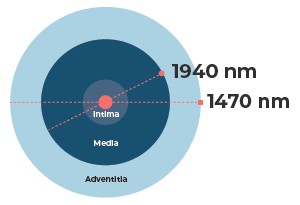In court society, the horse was a popular status symbol and prestige object among the nobility. This led to an emerging interest in its breeding, dressage and keeping, which causes an increase in specialist literature on hippology. A famous example is the study by Rene Baret de Rouvray. Volker Mecking carries out a linguistic historical analysis of Rouvray’s study in “ Hippologie et medecine du cheval au 17e siecle„. His book was published in February 2021 by GRIN.
Almost all studies on hippology have never benefited from a critical edition or lexical study, and thus constitute an exceptional breeding ground for a better understanding of the birth and development of hippological terminology. Volker Mecking analyses in his book „Hippologie et medecine du cheval au 17e siecle“ Edition B of Rouvray’s study. He provides new insights regarding the sources identified here for the first time and the submission of the treatise, the stratification of the specialist vocabulary. This includes the field of horse breeding, husbandry and training, the anatomy and common pathologies of the horse and their specific treatment, which meet the medical requirements of modern times veterinary medicine only partially sufficient.
The horse is inextricably linked to the royal court
In the spirit of the Ancien Regime the horse played a central role at court, often to show it off, but also in war, where it has proven itself in light cavalry and in numerous campaigns. The horse also indicates the social status of its owner. As such, the horse is inextricably linked to the royal court, as is the living space, the spending system in which luxury is a necessity, depending on the rank the individual occupies in the noble order. As a result, the care of these luxury goods becomes a priority that leads, for example, to the birth of didactic literature specifically dedicated to the horse. Volker Mecking addresses lay people and horse lovers interested in the history of veterinary medicine and natural medicine. For the history of the pre-classical vocabulary (1500-1650), this study from 1645 proves to be a source that should not be underestimated.
About the author
Volker Mecking is Professor of French Language Studies at the Catholic University of Lyon and has already published several publications in Renaissance Medicine.
The book was published in February 2021 by GRIN (ISBN: 978-3-34634-449-6)
Direct link for publication: https://www.grin.com/document/987692
Free review copies can be obtained directly from the publisher at presse@grin.com.
GRIN Verlag has been publishing academic e-books and books since 1998. We publish all scientific papers: term papers, bachelor theses, master theses, dissertations, specialist books and much more.
Contact
GRIN Publishing GmbH
Sabrina Neidlinger
Trappentreustr. 1
80339 München
Phone: +49-(0)89-550559-0
Fax: +49-(0)89-550559-10
E-Mail: presse@grin.com
Url: https://www.grin.com
Die Bildrechte liegen bei dem Verfasser der Mitteilung.







